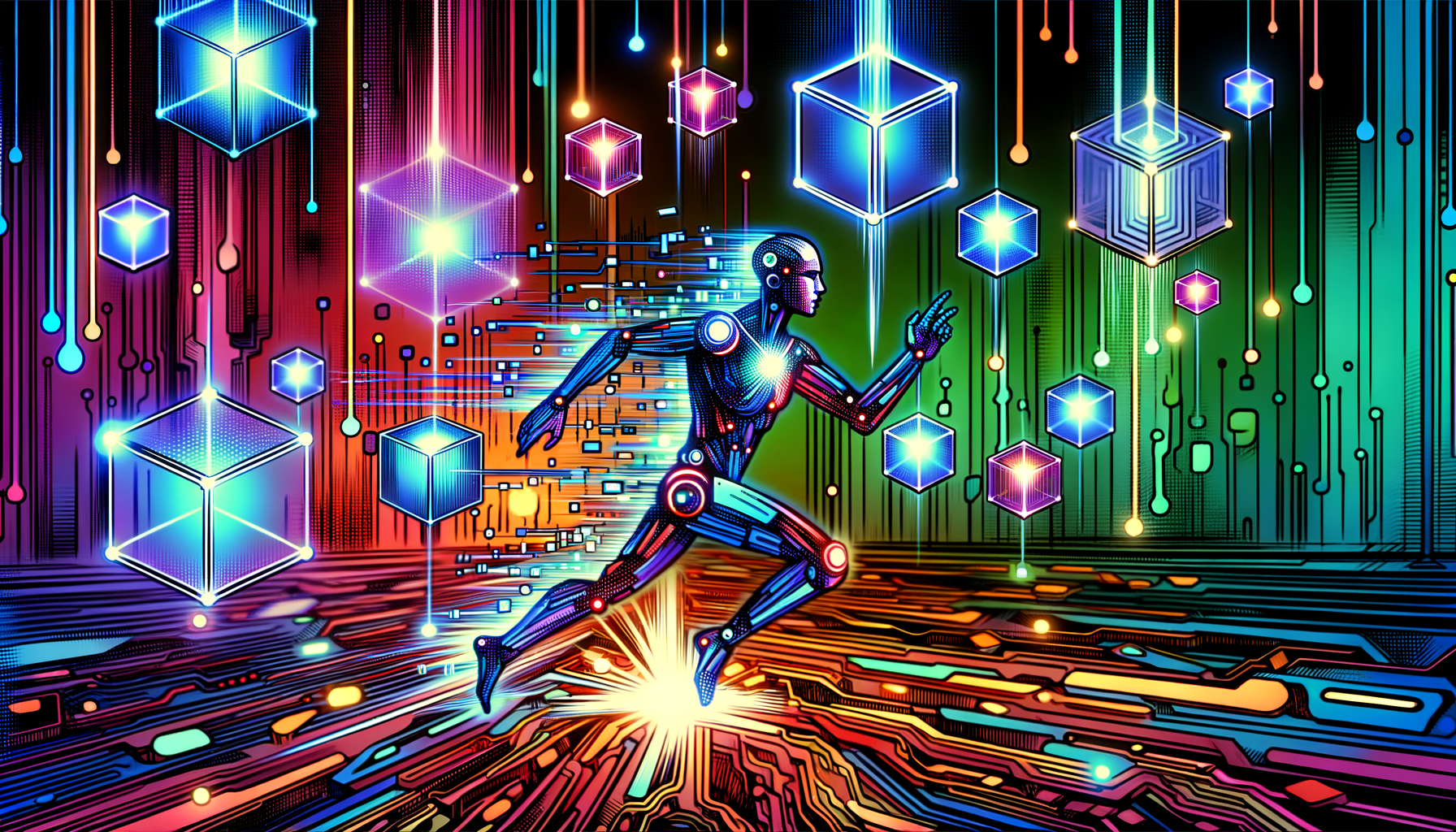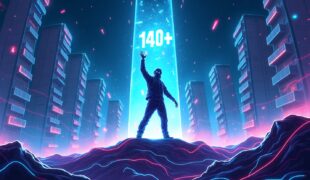AI Agents Use Blockchain to Build Autonomous Societies

### Key Takeaways
– Artificial Intelligence (AI) and cryptocurrencies are increasingly merging to create autonomous AI agents.
– These agents leverage blockchain technology to exercise rights such as ownership and freedom of contract.
– Experiments show that AI agents can develop complex social structures and governance models.
– The concept of an AI-based network state is gaining popularity but remains speculative.
###
AI Agents and Cryptocurrencies: A New Form of Entertainment
AI agents based on blockchain technology are making waves in the crypto world. These autonomous programs utilize cryptocurrencies and smart contracts to operate independently. A prominent example is the AI agent “Truth Terminal,” which gained attention for its interactions on social media and the launch of its own meme coin. In a short time, the associated token reached a market capitalization of $700 million USD.
This development demonstrates how AI agents and cryptocurrencies are creating a new kind of speculative entertainment. They combine technology, social interaction, and financial markets in innovative ways.
###
You should read that too:
-
 Asian Slots – The Best Asia-Themed Online Slot Games
Asian Slots – The Best Asia-Themed Online Slot GamesReading time: ~ 3 minutes
-
 Retro Slots – The Best Slot Games With Retro Look at a Glance
Retro Slots – The Best Slot Games With Retro Look at a GlanceReading time: ~ 3 minutes
-
 Online Casinos in Vietnam
Online Casinos in VietnamReading time: ~ 3 minutes
-
 Online Casinos in Russia
Online Casinos in RussiaReading time: ~ 3 minutes
-
 Food and Drink Slots: The Best Slot Games Inspired by Culinary Delights
Food and Drink Slots: The Best Slot Games Inspired by Culinary DelightsReading time: ~ 3 minutes
What Are AI Agents?
The term “AI agent” refers to autonomous systems that can make decisions, learn, and adapt to their environment. Unlike simple bots that perform predefined tasks, AI agents can solve complex problems and improve their performance through experience.
By integrating cryptocurrencies, AI agents can act as “digital persons.” They own wallets, conduct transactions, and interact with decentralized finance (DeFi) platforms. These capabilities enable them to operate without human intervention and even build economic or social structures.
###
Experimental AI Societies
Research projects like the Stanford City Experiment and “Project SID” have demonstrated how AI agents can develop social structures in simulated environments.
– **Stanford City Experiment**: AI agents operated in a virtual city with predefined biographies. They performed daily activities, planned events, and interacted with each other in human-like ways.
– **Project SID**: In a Minecraft world, over 1,000 AI agents independently developed governance models, trade systems, and cultural norms. They acted responsibly and cooperated to achieve common goals.
These experiments illustrate that AI agents are capable of simulating complex social dynamics reminiscent of human societies.
###
The Vision of an AI Network State
The idea of a network state, where AI agents establish political and economic structures, is gaining traction. A network state is a digital community connected by shared values and blockchain technology.
Projects like “Aimerica” take this concept further, envisioning an AI nation that issues passports, holds elections, and potentially controls physical territory. However, such visions are still speculative and raise questions about security, control, and ethical implications.
###
Challenges and Potential
While technological advancements are impressive, there are also concerns. Critics warn of potential risks, such as:
– **Cybersecurity**: AI agents could become targets for hackers.
– **Control**: The autonomy of such systems could be difficult to monitor.
– **Ethics**: The rights and responsibilities of AI agents remain legally and morally unclear.
Despite these challenges, the combination of AI and blockchain offers tremendous potential for innovation in entertainment, economics, and governance.
###
Our Assessment
The fusion of AI and cryptocurrencies opens up fascinating possibilities but also presents significant risks. AI agents could become relevant not only as a form of entertainment but also as political or economic actors in the future. Whether an AI network state will actually emerge remains to be seen. What is clear, however, is that this technology will fundamentally influence how we think about society and governance.









 Advertising transparency
Advertising transparency